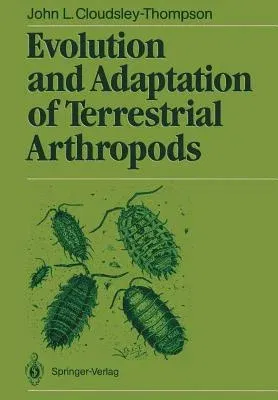Thisisnotintendedtobeacomprehensivetextbookofentomology andarachnology,
butratheraconcisesynthesisofcertainbasic informationrequiredfor
BSc(Hons)andMSc(Entomology) examinations.
Theapproachisprimarilyfunctional: forinstance,
theskeletalandwaterproofingpropertiesofthearthropodcuticle arediscussed,
butnotitsbiochemistry;andIhaveincludedonly
thosepointswithwhichIbelievealladvancedstudentsofthesub-
jectoughttobefamiliar. Someaspectsaretodayregardedas
outdated;othersdonotappearinanycurrenttexts, butIhave
includedthembecauseIconsiderthemtobeimportant. Innoway, therefore,
shouldthisberegardedasabookofreference. Tobe frank,
itconsistsofamassofoversimplificationsandunqualified
generalizationswhichareintendedtoclarifythecomplexprinciples
underlyingthem. OncetheseprincipleshavebeenthorougWy grasped,
thereaderwillhaveacquiredasufficientlybroadapproach
tobeabletogetthebestvaluefrommoreadvancedtreatises. MythanksareduetoDrs.
JohnDalingwater, AndrewMilner,
andespeciallyPaulHillyardfortheiradviceonpalaeontological
matters;toProfessorsEinarBursellforpermissiontouseFig. 8, takenfromhis
An Introduction to Insect Physiology(Academic Press), NeilF.
HadleyandtheEditorsof American Scientistto reproduceFigs. 52,53, andtoF.
SchallerforFig. 42fromachap- terhewroteinGupta(ed. ) Arthropod
Phylogeny(VanNostrand Reinhold). Finally,
IwouldliketoexpressmygratitudetoRoy
Abrahamsforredrawingthefiguresshowinginsectwingvenations
andtoEileenBerghfortypingthemanuscript. Thebookwas
completedduringtenureofaLeverhulmeEmeritusFellowship
whichIampleasedtoacknowledge, whileProfessorN. A. Mitchison
FRSkindlyprovidedmewithaccommodationinUniversityCol- lege, London. J. L.
CWUDSLEY-THOMPSON Contents 1 PalaeontologyandPhylogeny. . . . . . . . .
. . . . . . . . . 1 1. 1 TheEarliestArthropodanFossils. . . . . . . . .
. . . . . . . 1 1. 2 TheFirstTerrestrialArthropods. . . . . . . . . . .
. . . . . . 2 1. 3 EvolutionintheArthropods. . . . . . . . . . . . . . .
. . . . 4 1. 3. 1 EmbryologicalConsiderations. . . . . . . . . . . . . .
. . . . 4 1. 3. 2 ComparativeMorphology. . . . . . . . . . . . . . . . .
. . . . 5 1. 3. 3 MonophyleticorPolyphyleticOrigins. . . . . . . . . . .
. . 6 FurtherReading. . . . . . . . . . . . . . . . . . . . . . . . . .
. . . . . . 9 2 ImplicationsofLiveonLand. . . . . . . . . . . . . . . 10
2. 1 TheSignificanceofSize 10 2. 1. 1 Size, SkeletonsandAllometry 11
2. 1. 2 AllometricGrowth 12 2. 2 WaterRelations 12 2. 3
TheConquestoftheLand 14 2. 4 . TheIntegument 14 2. 4. 1 TheEndocuticle
15 2. 4. 2 TheExocuticle 15 2. 4. 3 TheEpicuticle 16 2. 5
GrowthandEcdysis 18 2. 6 Respiration: Lung-BooksandTracheae 19 2. 7
NutritionandExcretion 21 2. 7. 1 Nutrition 21 2. 7. 2 Excretion 22 2. 8
EcologicalConsiderationsofSize 23 FurtherReading 25 3
TheConquestoftheLandbyCrustacea. . . . . . . . . . . . 26 3. 1
TypesofAdaptation. . . . 26 3. 2 TransitionfromWatertoLandinAmphipoda 26
3. 3 TransitionfromWatertoLandinDecapoda 28 3. 4
TransitionfromWatertoLandinIsopoda 30 3. 4. 1 Morphology 30 3. 4.
2Physiology. . . . . . . . . . . . . . . . . . . . . . . . . . . 31 3.
4. 3 Behaviour 34 VIII Contents 3. 5 Conclusion 35 FurtherReading. . . .
. . . . . . . . . . . . . . . . . . . . 36 4
InsectPhylogenyandtheOriginofFlight. . . . 37 4. 1 AncestryofInsects 37
4. 2 TheOriginofWings 38 4. 2. 1 Apte10taandtheAncestryofSpiders 39 4. 3
Paranota1Theory 40 4. 4 TrachealGillTheory . 42 4. 5 SelectionforFlight
43 4. 6 PhylogenyoftheLowerInsectOrders . 44 4. 6. 1 FossilEvidence .


